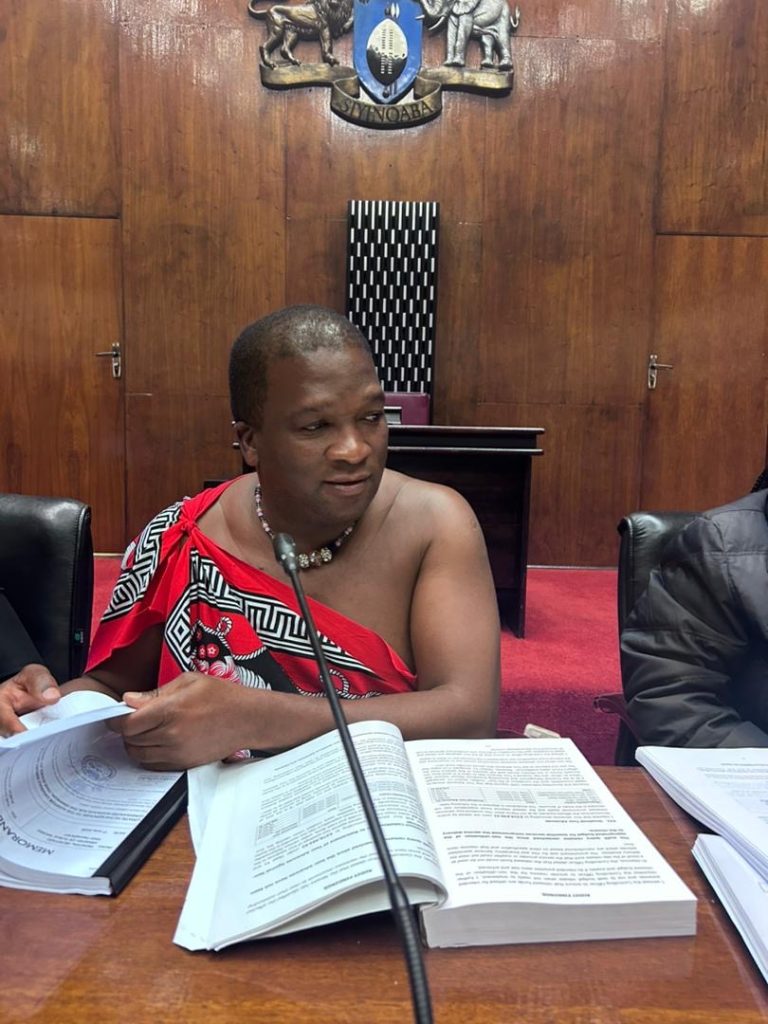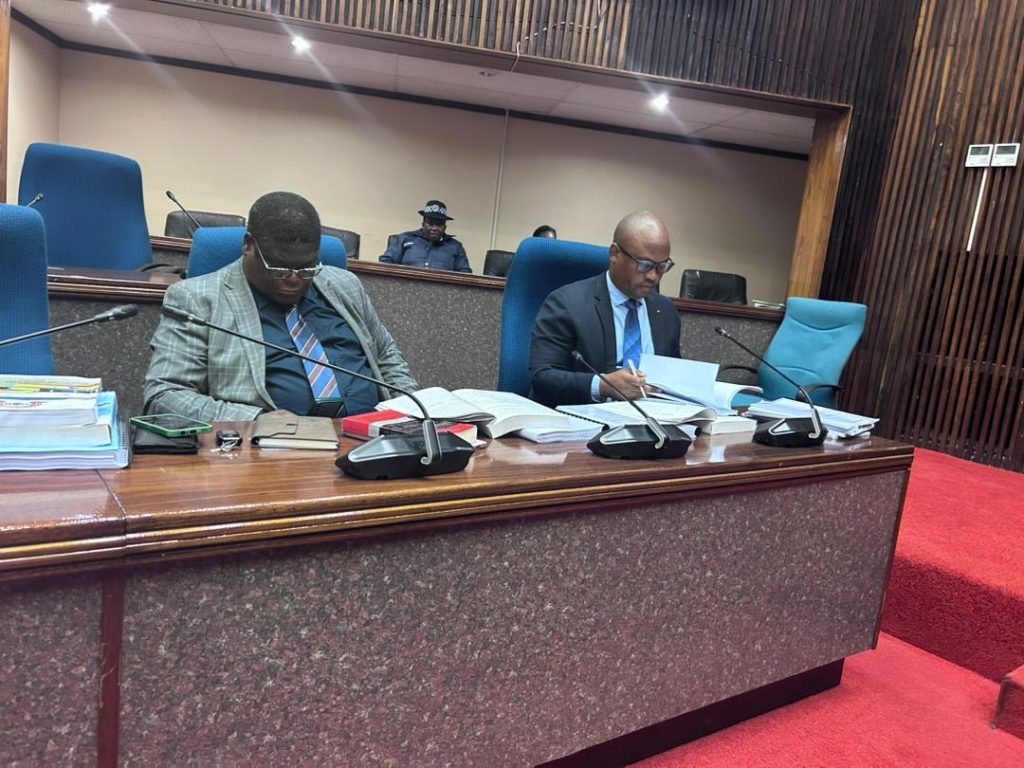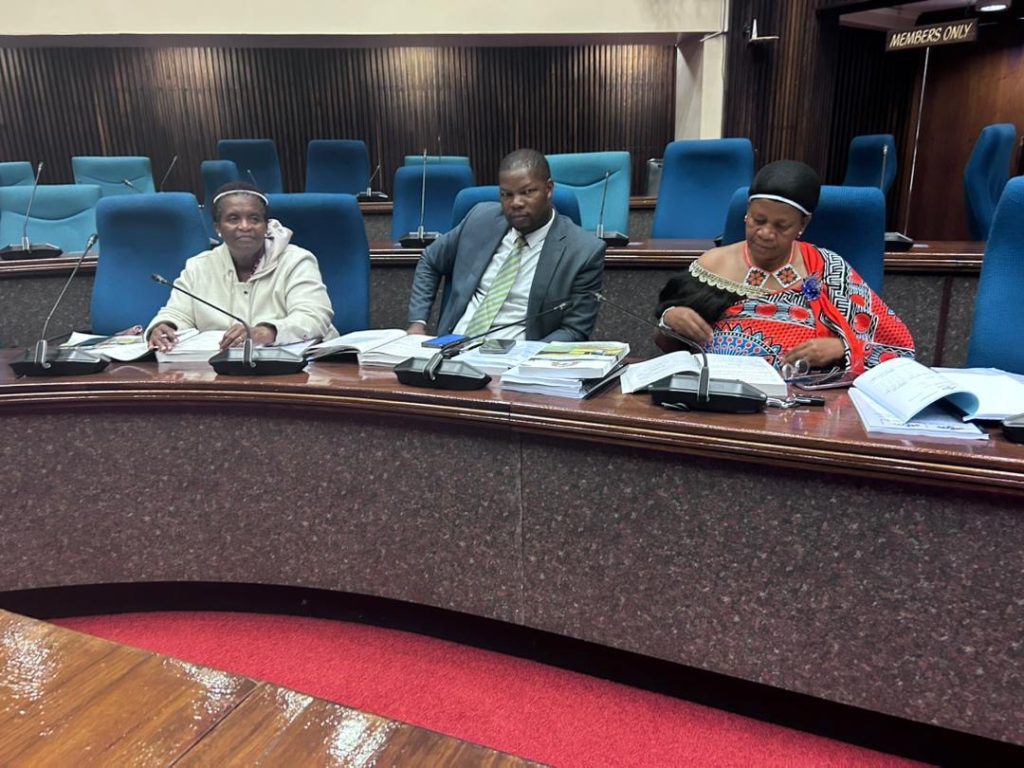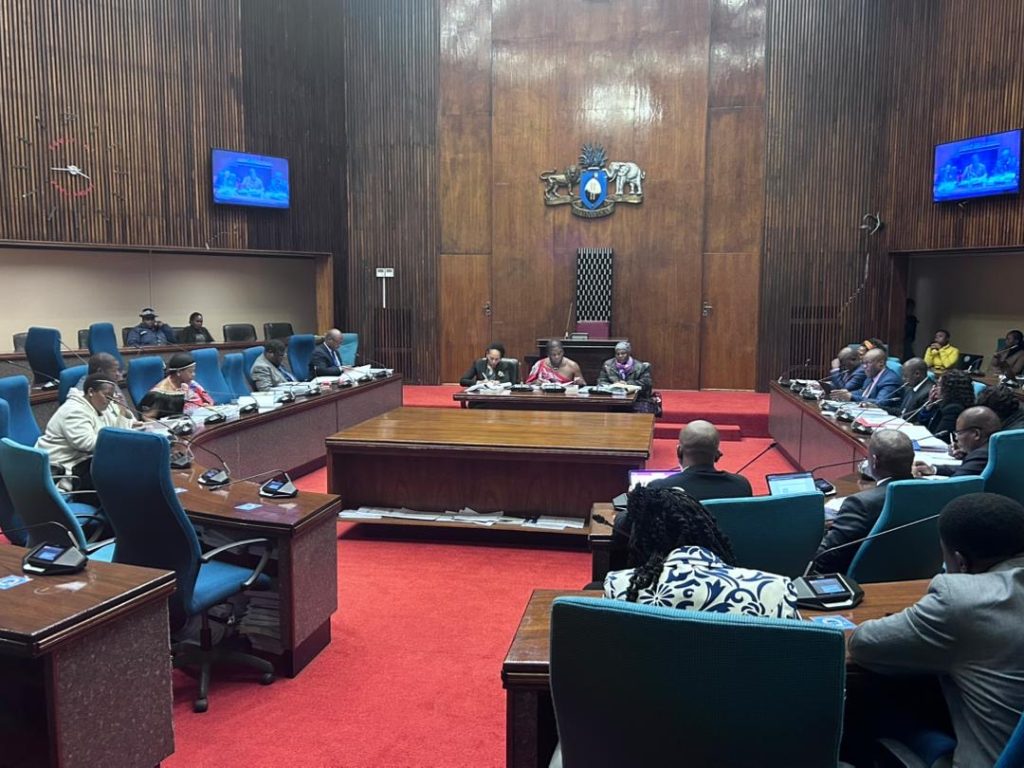
A Decade of Deception: Uncovering Eswatini’s multibillion accounting scandal
By Zwelethu Dlamini
- Eswatini’s government finances are trapped in a cycle of systemic failure, marked by recurring material misstatements in bank balances, fictitious assets and liabilities, widespread unauthorised expenditure, and a glaring lack of adherence to financial regulations, year after year.
- From the most recent 2024 audit pinpointing over E1.6 billion in understated expenditure and nearly E1 billion in unauthorised spending, to historical reports showing multi-billion Emalangeni discrepancies, the Auditor General’s consistent “qualified opinions” underscore a deep-rooted crisis of public financial mismanagement that demands urgent and decisive reform.
Part One: Eswatini’s multibillion Emalangeni accounting scandal
For nearly a decade, the public accounts of Eswatini have been shrouded in a fog of financial irregularities, material misstatements, undisclosed liabilities, a pervasive lack of accountability and unauthorised expenditures, as revealed by a relentless stream of “qualified” audit reports from the Auditor General and the parliamentary Public Accounts Committee (PAC) reports.
Billions of Emalangeni remain unaccounted for, with total misstatements reaching E8.44 billion in 2016 and E2.56 billion in 2024. This includes E155 million in fictitious assets and E645 million in undisclosed liabilities in 2024 alone.
A qualified opinion means that the Auditor General, while concluding that the government’s financial statements were fairly presented, there were areas that prevented the auditors from giving an ‘unqualified’/clean opinion. In simple terms, the consistent qualified auditors’ opinion means that the country’s financial records are unreliable.
Coordinating Assembly for NGOs (CANGO) Director Thembinkosi Dlamini said this crisis is evident in the government’s over-reliance on supplementary budgets. “What is approved in February may be totally unrelated to the reported budget outcomes in the next budget. In short, the usual Auditor General’s report then PAC appearance by accounting officers is no longer enough; rather than a conversation about this crisis should be held with all stakeholders in the room,” he said.
Faking the Books – Hidden Debts and Ghost Ministries
In 2024, government ministries and departments incurred unappropriated expenditures amounting to E155.9 million, including foreign payments and unbudgeted accruals. According to Auditor General Timothy Matsebula, this unlawful spending “translated to fictitious assets” on the government’s books as of 31st March 2024. He further warned that “unauthorised expenditures and unappropriated budgets are not only unlawful but also provide room for misappropriation of public funds and result in serious repercussions in the entire fiscal budget.”
A significant portion of the fictitious assets (E70,465,085.94) resulted from “Unappropriated Expenditure on Accounts Payable – Foreign Payments”, with the Ministry of Foreign Affairs and International Cooperation contributing 50 per cent of this amount.
This practice is not an accounting error but a calculated act of financial deception. Funds were spent without the legal authorisation from Parliament, and then, instead of being accurately recorded as unauthorised expenditures, they were disguised as “assets” to artificially balance the books. This mechanism effectively conceals illicit spending, allowing ministries to bypass critical parliamentary oversight and potentially divert public funds without transparent accountability.



Further, in the same year, a staggering E644,998,529.56 in liabilities was not disclosed in the Detailed Statement of Liabilities for the year ended 31 March 2024. This omission significantly distorts the government’s true financial position, making it appear healthier than it is. The non-disclosure of debts includes critical obligations such as:
- E227,286,952.85 outstanding government properties’ rates.
- E234,628,834.45 owed to the Eswatini Water Services Corporation, Eswatini Electricity Company, Eswatini Posts and Telecommunication Company, and Eswatini MTN.
- Phalala Fund debt payable to various persons/entities (medical claims): E182,946,582.30
- Tax debts in respect of PAYE and VAT: E136,159.96
These undisclosed debts mean the government owes far more than it admitted, potentially increasing future costs through penalties or interest. Hiding these substantial liabilities, particularly those directly impacting public services like medical claims and essential utilities, is a deliberate strategy to obscure the government’s true financial health.
The issue of unauthorised expenditure extends to budgetary discipline. E53.3 million was budgeted for ministries that no longer exist, indicating severe budgetary control failures and a clear potential for diversion of funds.
Furthermore, government ministries “irregularly accrued budget on Accounts Payable, Accounts Accrued- All ministries and Outstanding Accounts Accrued- Recurrent amounting to E564,491,429.69 which translated to fictitious liabilities, as of 31 March 2024”.
This is another form of deliberate misrepresentation, where expenses are recorded without actual obligations, often to artificially meet budget figures or conceal other transactions. Such financial falsification obscures the government’s true obligations and resource allocation, potentially allowing for the diversion of funds.


Five years of financial misstatements
From 2015 to 2024, Eswatini’s books show a trail of billions in errors. Whether through unreconciled bank accounts, embassy currency blunders, or incorrect public debt figures, the numbers have become meaningless. The sheer volume and persistence of misstatements across multiple years, particularly in core areas like bank balances and revenue, reveal a deeply entrenched pattern of financial obfuscation rather than isolated errors. This chronic condition indicates that past audit findings are not being effectively addressed, perpetuating a cycle of financial non-transparency.
A chronological deep dive into the Auditor General’s reports highlights this alarming trend:
- 2020: The query identifies E27.3 million in bank misstatements. While specific detailed breakdowns for this year are not extensively provided in the primary documents, the recurring nature of bank reconciliation issues across other years underscores this as a persistent problem.
- 2021: The query points to E1.17 billion in foreign currency errors. Although explicit details for this exact figure are not fully elaborated in the provided snippets, the broader context of foreign payments linked to fictitious assets in 2024 suggests ongoing challenges with international transactions. Furthermore, the National Disaster Management Agency (NDMA) faced significant audit queries in 2021, including E11.4 million in unaccounted-for expenditure for Emergency Response Projects and E30.9 million for the COVID-19 Response Project. These uncaptured and unaccounted funds contribute to the overall misstatements and indicate severe deficiencies in financial controls during critical periods.
- 2022: The query notes that suspense accounts distorted E1.2 billion. While a specific E1.2 billion figure for suspense accounts in 2022 is not detailed in the provided snippets, the systemic misuse of suspense accounts is a pervasive and long-standing issue. These accounts are frequently used as long-term placeholders, effectively obscuring the true nature of transactions. For instance, the “Wages Advance Suspense Account” was used to irregularly cancel unrecovered cash advances for elderly grants, with E67.6 million missing since 2010. This practice highlights how temporary holding accounts are exploited to hide missing funds and manipulate financial records over extended periods.
- 2023: The financial statements for this year were materially misstated, particularly regarding assets. Bank balances were misstated by E647,084,230.07 due to non-reconciliation of cash books with bank statements and undisclosed bank balances. Specifically, E157,766,751.47 was misstated due to non-reconciliation, with some balances overstated by E108,742,219.22 and others understated by E49,024,532.25. Additionally, a staggering E489,317,478.60 in bank balances was not disclosed in the Detailed Statement of Assets, resulting in a significant understatement of assets. This means nearly half a billion Emalangeni were either unknown to the government or deliberately hidden from public view, depicting an incorrect cash position. The audit also revealed E154 million in uncaptured appropriated budgets and E79 million in unappropriated budgets captured in the system, giving a false impression of parliamentary appropriations.
- 2024: This year saw E2.56 billion in cumulative misstatements, encompassing the various forms of financial irregularities. The scale of misstatements continued to be substantial, with E91.1 million in bank balance misstatements due to non-reconciliation and undisclosed balances.
The historical context of misstatements underscores the deeply embedded nature of the problem:
- 2016: The total identified misstatements in the financial statements amounted to E8.44 billion. Bank balances alone were misstated by E7.95 billion, with operational accounts overstated by E490 million and understated by E5.4 billion. A particularly shocking example was the General Account, which showed an overdraft of E3.8 billion in the government system, yet its bank statement balance was E5 million. Furthermore, revenue was understated by E407 million due to omissions in income taxes, lotteries, and sales taxes, and E16.6 million in dividends and fees vanished from the books. Transactions for the Disaster Relief Fund were entirely omitted from the accounting system.
- 2017: Bank balances were misstated by E7.53 billion due to non-reconciliation. Liabilities were misstated by E1.29 billion, a consequence of incorrect debit/credit postings and improper offsetting of balances. A significant E766 million in revenue was not disclosed. The audit also found fictitious inventory of E95 million and an un-reflected excess stock of E36 million in the Drugs Trading Account.
- 2018: Revenue was misstated by E1.35 billion, including E1.34 billion in understated income taxes and road tolls. Bank balances were misstated by E1.30 billion due to non-reconciliation. Additionally, E13.1 billion in debit balances for liabilities were unreconciled, and the Auditor General was deprived of source documentation to confirm their nature.
The consistent, large-scale misstatements render the government’s cash position and overall financial health “meaningless”. The specific nature of misstatements, such as “fictitious assets” and “fictitious liabilities,” points to a deliberate strategy to manipulate financial statements. This goes beyond poor accounting; it indicates a potential cover-up of unauthorised spending or outright fraud, undermining the integrity of the entire financial reporting system and raising serious questions about the ethical conduct of those responsible for managing public funds.
What went wrong?
- Bank accounts were not reconciled, meaning that the balances in government books do not match actual bank statements.
- Eswatini has failed to adopt International Public Sector Accounting Standards (IPSAS).
- Spending happened without approval, where funds were used outside of the approved budget.
- Numbers were made up, essentially inventing numbers to hide the truth.
Weak oversight by the Public Accounts Committee (PAC) and the Anti-Corruption Commission (ACC) enabled the gross public finance mismanagement, and when they tried to act, their advice was often ignored. Their recommendations are routinely ignored, and no significant prosecutions or disciplinary actions have been taken, cultivating a deep-seated culture of impunity.
These failures have real consequences on the lives of emaSwati. Throughout this decade of plunder:
- Hospitals have run out of critical drugs.
- Grants for the elderly have gone unrecovered.
- Donors have lost trust, and some withdrew their support.
- The government has consistently failed to handle emergencies such as the COVID-19 pandemic and the withdrawal of USAID.
Experts say there is an urgent need for comprehensive reforms, including full IPSAS implementation, modernisation of financial systems, rigorous enforcement of accountability, and a fundamental shift in political will to address this escalating crisis.
While the country is grappling with high poverty and inequality, the mismanagement of public finances has worsened the crisis. Year after year, the Auditor General’s reports serve as damning indictments, consistently issuing “qualified audit opinions” on the government’s annual financial statements. Reliable public financial reporting is the bedrock of good governance, enabling effective parliamentary oversight, fostering donor confidence, attracting investment, and ensuring public accountability. The lack of accurate financial data means the government itself may not even know how much money it truly possesses.
The depth of the problem is alarming. The PAC Chairperson, MP Madala Mhlanga, in an interview with Inhlase, said these qualified opinions highlight “gross misstatements, fictitious accounting entries, and a blatant disregard for legal budgetary procedures”.
This investigation found the layers of financial deception, systemic weaknesses that enable this mismanagement and identified the contributing factors. The findings reveal a pattern of behaviour that undermines the very foundations of responsible governance and jeopardises the nation’s financial future.



